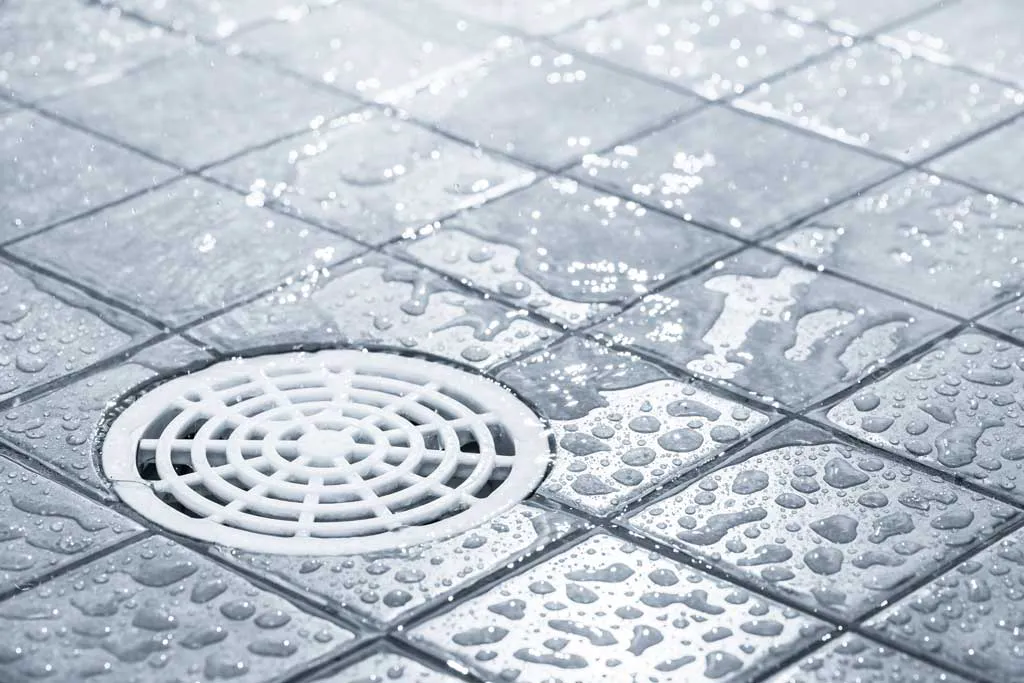Sewer Gas in Your House: Causes, Symptoms & How to Fix It
Dealing with Sewer Gas: Identifying the Source and Finding Solutions
Dealing with Sewer Gas: Identifying the Source and Finding Solutions
Prevention Tips
Preventing sewer smells in your house is often easier and more cost-effective than addressing them once they occur. Implement these preventive measures to maintain a fresh-smelling home:
- Schedule regular plumbing inspections
- Clean drains and P-traps regularly
- Address leaks promptly
- Be mindful of what goes down your drains
- Ensure proper ventilation in bathrooms and kitchens
- Maintain outdoor plumbing components
By following these tips and addressing issues promptly, you can keep sewer smells at bay and maintain a healthy, pleasant-smelling home environment.
Sewer Smell in House at Night: Causes and Solutions
Experiencing a sewer smell in your house at night can be both unpleasant and concerning. I understand that it disrupts the comfort of your home and can lead to a restless night.
Identifying the root cause of this sewer odor is the first step toward a solution. In some cases, the smell may be due to a dry P-trap, which is designed to block sewer gases from rising into your home.
If the water in the P-trap evaporates, such as in a rarely used sink or drain, the barrier against these odors is no longer present. Alternatively, the smell could be an indication of a more serious problem, like a broken vent or sewer line, which would require professional attention.
My approach focuses on effective diagnostic techniques and practical solutions to restore the sanitary and fresh atmosphere of your living space.
Through careful investigation and a thorough understanding of household plumbing systems, I’ll guide you on how best to address and resolve these unwelcome sewer smells.
Identifying the Source of Sewer Smell
Sewer smells in homes come from specific spots that need careful checking. Finding the exact source helps fix the problem quickly and keeps your home safe from harmful gases like hydrogen sulfide and methane.
Common Causes of Sewer Smell in House
Dry P-traps are a major source of sewer smells. When drains go unused for weeks, the water seal evaporates and lets gases enter.
Clogged drains trap debris and create strong odors in bathrooms, kitchens, and laundry rooms. These clogs can block proper water flow and ventilation.
The smell might be stronger in certain rooms or near specific drains. Check floor drains, basement drains, and rarely used sinks first.
Common Problem Areas:
- Basement floor drains
- Guest bathroom sinks
- Laundry room drains
- Shower drains
Role of P-Traps and Water Barriers
P-traps form a water seal between living spaces and the sewer system. This curved pipe section holds water that blocks sewer gases from rising into the house.
Each drain needs a working P-trap. The water barrier must stay full to work right. Pour water into unused drains every few weeks.
P-trap Maintenance Tips:
- Add 1 cup of water monthly
- Check for leaks under sinks
- Clean P-traps yearly
- Fix damaged seals promptly
Signs of a Broken Sewer Line
Tree roots can crack sewer pipes and create gaps where gases escape. Watch for wet spots in the yard or unusually green grass patches.
Bad smells near foundation walls might mean a broken sewer line. Listen for gurgling sounds in pipes when using sinks or toilets.
Look for these warning signs:
- Slow drains in multiple fixtures
- Sewage backups
- Wet soil around yard
- Cracks in foundation
Vent Pipe Issues
Vent pipes remove sewer gases from the plumbing system. Blocked vents force gases back into the house through drains.
Birds nests, leaves, or ice can plug vent pipes on the roof. A blocked vent makes drains gurgle and creates vacuum effects.
Check these vent problems:
Clean vent pipes yearly. Make sure snow and debris stay clear of roof vents.
Remedies and Quick Fixes
When dealing with sewer smell in the house at night, prompt and effective solutions are crucial to restore comfort and ensure hygiene. I’ll walk you through some practical steps using common household items and homemade solutions.
Utilizing Household Items
Air Fresheners: While not a solution for the underlying cause, air fresheners can provide immediate respite from the foul odor. I recommend opting for those with natural scents to avoid overpowering the space.
- Baking Soda: This pantry staple is excellent for neutralizing odors. Sprinkle baking soda liberally around drains and let it sit overnight to absorb the smell.
- White Vinegar: For a deeper cleansing action, pour a cup of white vinegar down the drain and let it work for a few minutes before flushing with hot water.
Homemade Solutions
Creating a mixture of baking soda and white vinegar can produce a powerful cleaning agent. Here’s how to use this combination effectively:
- Pour half a cup of baking soda down the drain.
- Follow with a cup of white vinegar.
- Allow the mixture to fizz and sit for 10 minutes.
- Flush the drain with boiling water.
Using these simple, yet effective approaches, you can often address the nuisance of nighttime sewer odors emanating from your household drains.
Furthermore, it’s essential to recognize when a situation is an emergency:
Under these circumstances, hiring a local plumber is not just a question of convenience but safety. Specialists have the tools and expertise to diagnose and remedy complex issues such as septic line leaks or a cracked sewer line, and they understand the urgency behind any potential health risks.
Moreover, being proactive can prevent more significant problems down the road. Remember, ensuring the safety of your home environment is paramount, and prompt professional attention is key to achieving that.



Tegs:
Search
Recent Posts
-
Get Rid of Unpleasant Sewer Odors in Your Home with These Proven Tips
May 3 2025
-
Sewer Smell in Your House: Identifying the Source and Finding Solutions
May 7 2025
-
RV Sewer Hookup: A Step-by-Step Guide for Homeowners
May 10 2025
-
Unpleasant Odors: Identifying and Solving Sewer Smell Problems in Your Home
May 16 2025
Subscribe to Updates
Get the latest posts and fashion insights directly in your inbox.